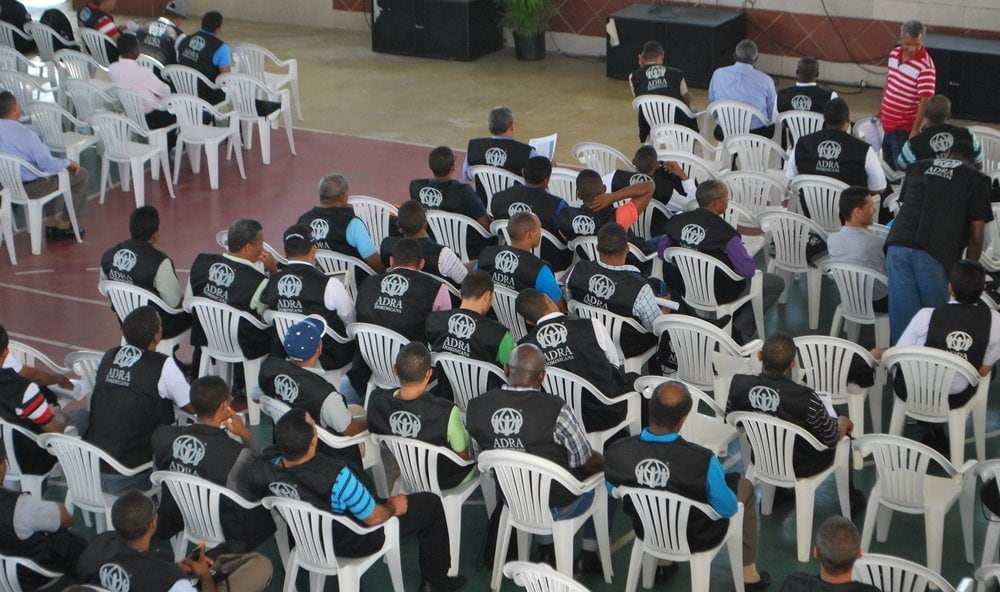
Two hundred Adventist pastors awoke to the sound of loud explosions at 4 a.m.
Firefighters rushed to the scene in their fire trucks, lights flashing and sirens squealing.
The pastors sprang into action, implementing a list of emergency response measures that they had learned the day before.
Adventist pastors may wear many hats as preachers, counselors, and administrators, but the 200 pastors in the Dominican Republic added a new job title to their resumes this month: emergency worker.
A two-day certification program conducted by the local branch of the Adventist Development and Relief Agency marked the first time that the local Adventist Church has sought to equip pastors to manage security and communicate well during emergencies.
“We needed to sensitize and train pastors so they can be agents of change in their churches and be more involved in situations that may affect their communities,” said Luis Miguel Acevedo, country director for ADRA.
In addition to the 4 a.m. drill, the pastors divided up by region and drafted emergency response projects for their respective territories.
The training is part of a larger plan to further connect churches with their communities, said Cesario Acevedo, president of the Adventist Church in the Dominican Republic and no relation to the ADRA director.

The emergency training could prove essential during heavy rains and flooding brought on by hurricanes. The hurricane season starts in June. But it also could save lives during outbreaks of dengue fever, cholera, and chikungunya.
“There are communities that could prevent certain emergencies if only they had risk-reduction plans for the spread of diseases,” said ADRA director Acevedo.
His office has responded to seven major emergencies across the country over the past five years, most recently in 2014 when an outbreak of chikungunya, an infection spread by mosquitoes, sickened people in the San Cristobal province in the southern part of the Dominican Republic. More than 500 trained volunteers in coordination with local health officials went house-to-house to share information.
Church leader Acevedo said the Dominican Union’s administrative committee voted recently to start turning every church into a community health this year, so working with ADRA on emergency responses and community projects would help in reaching that goal.
“We want our pastors to train church members to be facilitators so they can be ready to collaborate with the national Emergency Response Committee, the civil defense, and the Red Cross to help people in the communities where our churches are located,” he said.
Each of the country’s 747 churches will have its own ADRA coordinator, a health professional who can work with ADRA as well as organize health screenings every three months and work on other community projects, Acevedo said.
ADRA plans to further train pastors how to be proactive in emergencies in the coming months and will hold another major training next April.